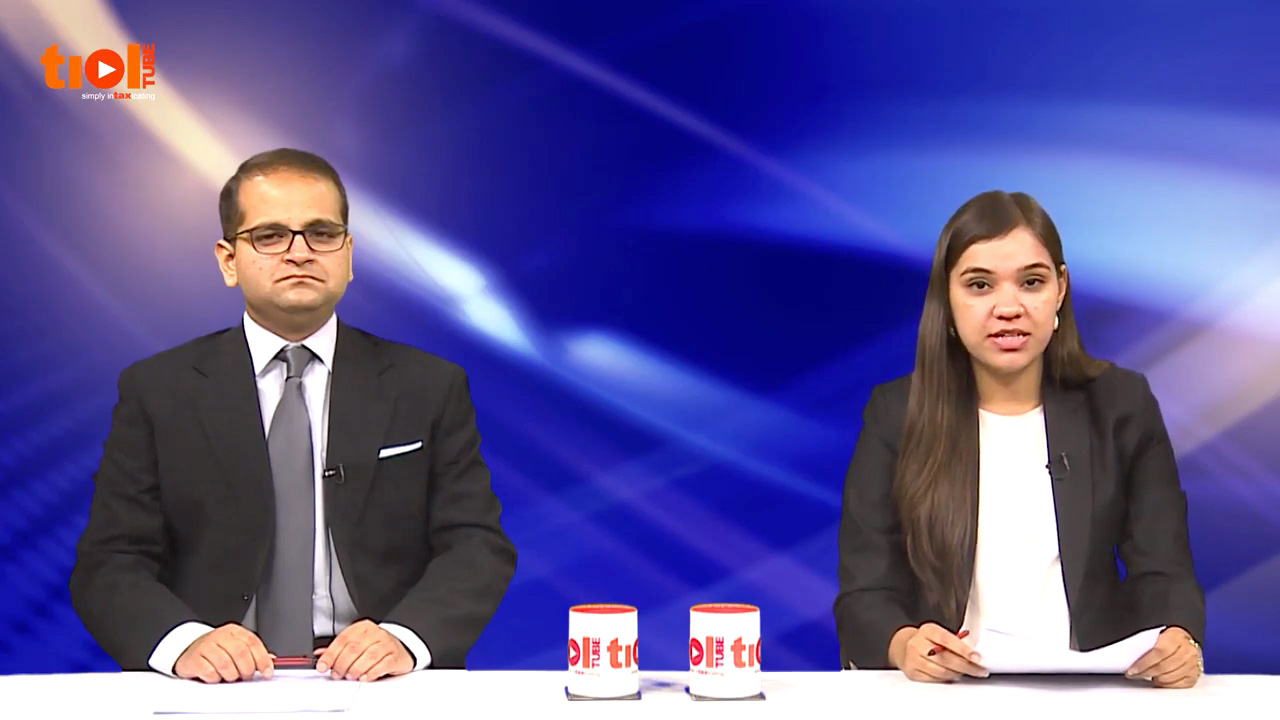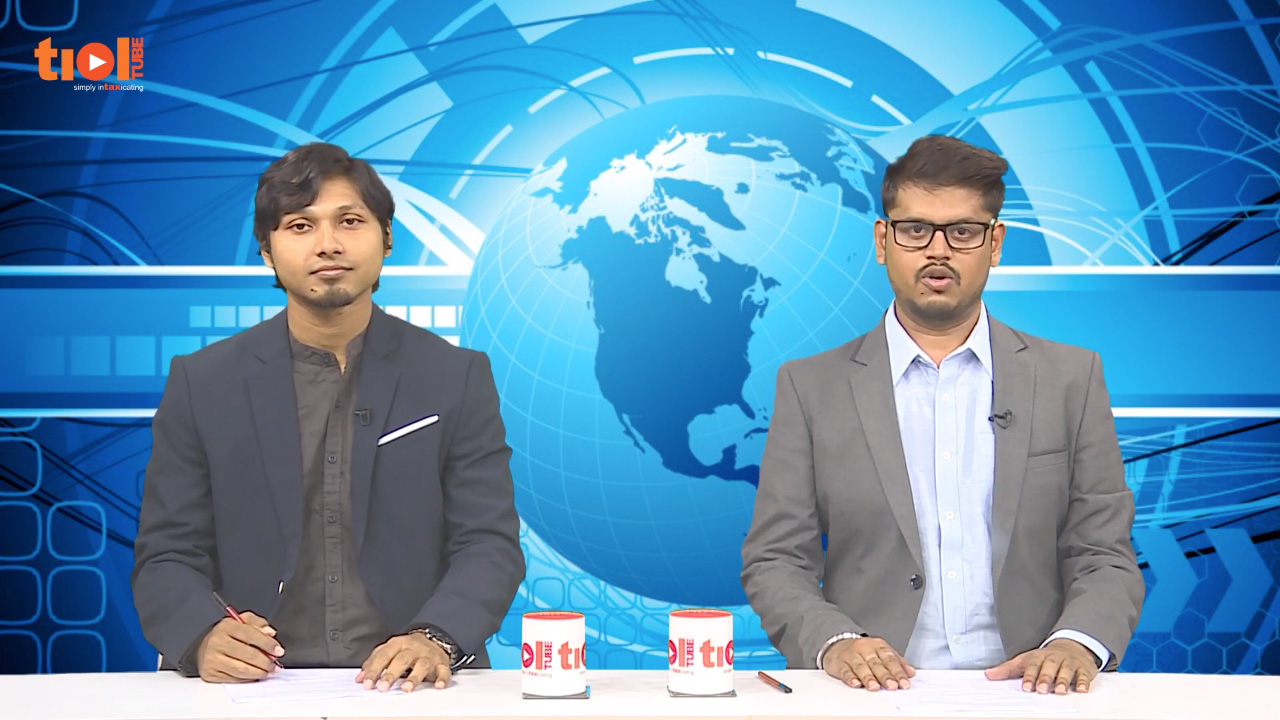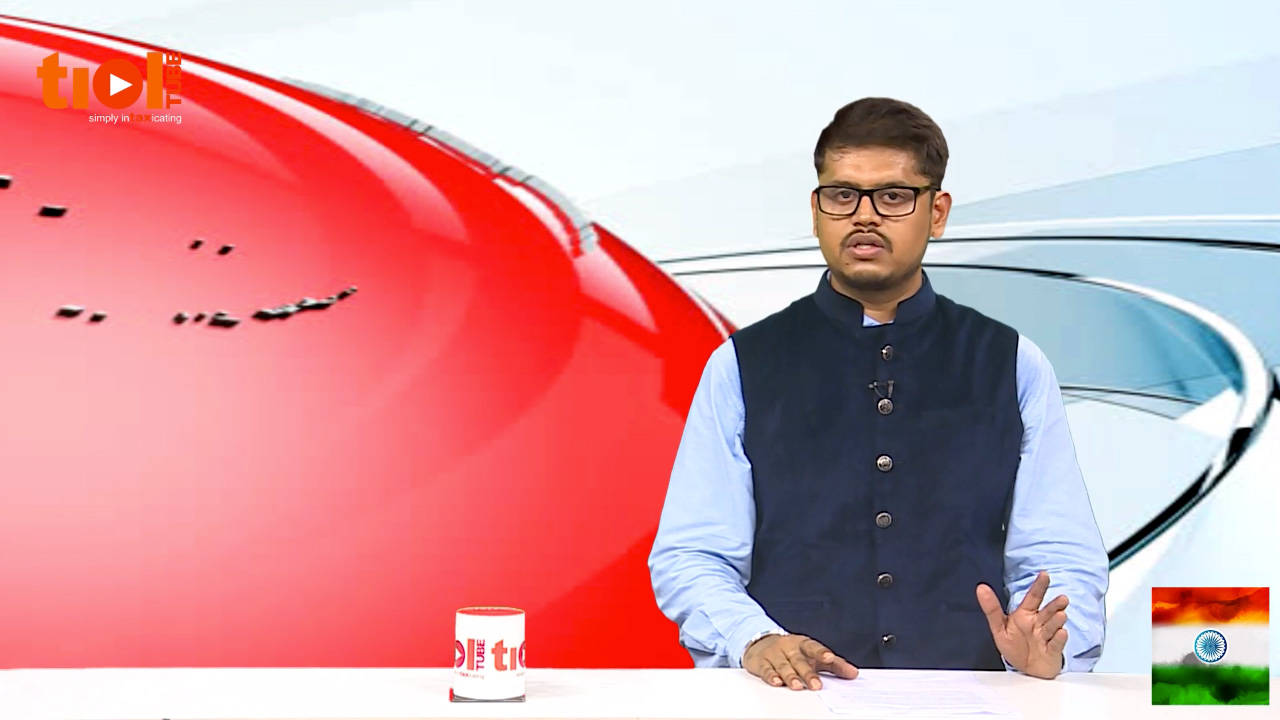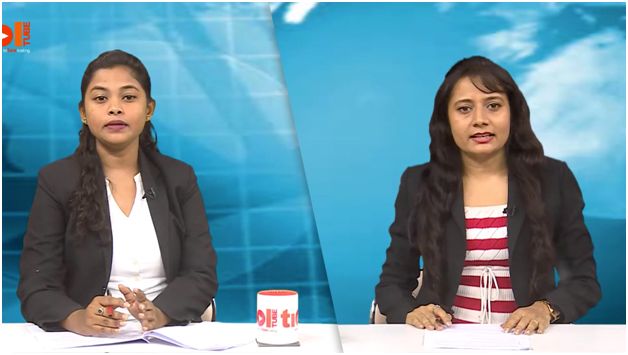|
SERVICE TAX
2019-TIOL-2456-CESTAT-AHM
Shree Gurukrupa Construction Company Vs CCE & ST
ST - As regard the issue that whether the assessee's refund can be restricted by the amount of cenvat credit attributed to the output service which became non leviable to service tax as per Section 102 of FA, 2016 - The service was retrospectively exempted for period April 2015 to February 2016 - During said period, the cenvat credit was availed - Though the parliament vide Section 102 of Finance Act provided that the construction service provided to Government department during period April 2015 to February 2016 is not leviable to service tax but by retrospective amendment, the service for the said period become non taxable - Therefore, any cenvat credit availed on input service used in such output service is also not admissible to the assessee - Therefore, the facts of M/s Ashok Iron & Steel Fabricators and in the present case are totally different, the ratio of said judgment is not applicable - The submission of assessee that since there is no specific provision for non availment of cenvat credit under Section 102 of Finance Act, the same cannot be reduced from the total refundable duty which was paid - Even though there is no specific provision in Section 102 but Rule 6 clearly provides that the cenvat credit is not allowed in respect of input service which was used in non taxable/exempted service - Therefore, the cenvat credit availed on input service attributable to the non taxable output service is required to be reduced from the total service tax paid on the output service, accordingly, the refund should be restricted by the amount of cenvat credit on input service attributed to not taxable output service - As regard refund of interest paid on the service tax, the service tax was admittedly refundable which is not in dispute even by department - Therefore, even though there is no specific provision in the Section 102 but once service tax is not payable than the interest paid on such service tax also become refundable - The issue of refund of interest on the service tax is decided in favour of assessee - The refund claim is to be restricted by amount of cenvat credit in respect of input service attributed to non taxable construction service - The assessee is entitled for the refund of interest paid on service tax on the output service: CESTAT
- Appeal partly allowed: AHMEDABAD CESTAT
2019-TIOL-2455-CESTAT-AHM
Harsh Communication Vs CCE & ST
ST - The assessee is engaged in providing service as cable operator - They were paying service tax from 2002 to 2005 thereafter Multi System Operator (MSO) was brought into tax net - Therefore, they were under bonafide belief that since MSO was brought into tax net, the MSO are supposed to pay the service tax and assessee was not required to pay service tax on the same service, and therefore they have not discharged the service tax - There is no dispute regarding the levy of service tax as submitted by assessee, however, he strongly argued that the assessee was entitled for Cevnat Credit on service received from MSO, therefore, to that extent the demand should be reduced - If the assessee is entitled to Cenvat Credit accordingly the demand of Service Tax should stand reduced to that extent - As regard entertainment tax, there is a finding of adjudicating authority that though they made a submission but no evidence was adduced in this regard - Assessee has invited attention to Chartered Accountant Certificate by which it appears that they have paid the entertainment tax - If it is found correct, the gross value should stand reduced to the value of entertainment tax and the Service Tax demand should be computed accordingly - Both these aspects were not dealt with by both the lower authorities - It is also a fact that the assessee have not produced any documents in support of their claim of Cenvat Credit as well as entertainment tax before the original authority - Therefore, the matter is remanded to the adjudicating authority: CESTAT
- Matter remanded: AHMEDABAD CESTAT
CENTRAL EXCISE
2019-TIOL-386-SC-CX
CCE & ST Vs Jains Mines And Minerals (India) Ltd
CX - The assessee-company is engaged in processing of Iron Ore - During the relevant period, dispute arose in respect of the duty liability on such process - The Revenue opined that conversion of Iron ore into concentrate is tantamount to manufacture, which would attract Excise duty - On adjudication, duty demand was raised and equivalent penalty was imposed - On appeal, the Tribunal held that the assessee had no special facility for carrying out such processing work - It was held that improvement of Fe content on account of the process undertaken by the assessee per se would not make the resultant product as being Iron ore concentrate - Hence it was concluded that the process in question did not amount to manufacture - Hence the orders of the lower authority was quashed by the Tribunal - Hence the present appeal by the Revenue.
Held - Delay condoned - The order of the Tribunal does not warrant any interference with: SC
- Revenue's appeal dismissed: SUPREME COURT OF INDIA
2019-TIOL-2454-CESTAT-CHD
Som Sugandh Industries Ltd Vs CCGST
CE - Appellants are manufacturers of Pan Masala, Gutkha and Khaini of various brands - On the allegation that the appellants had suppressed the production and clandestinely cleared the said goods without payment of CE duty, a duty demand of Rs.15,15,67,401/- was made and since M/s Som had already paid Rs. 1,74,01,717/-, therefore, balance duty of Rs. 13,41,65,685/- was proposed to be demanded by way of issuance of show cause notice alongwith imposition of interest and penalties on appellant and co-noticees - the Commissioner while adjudicating the matter, found that the main appellant [M/s.Som Sugandh Industries Ltd.] is not having the capacity to produce 50.89 crores of pouches within a short span time of 20 days - he held that only 30.06 crores of pouches could have been manufactured during the said period - therefore, on the basis of best judgment of the production capacity of the main appellant, he confirmed duty, as per Pan Masala Packing Machines (Capacity Determination & Collection of Duty) Rules, 2008, of Rs.8.25 crores against the main appellant alongwith interest and imposed penalty of Rs.8.28 crores and various penalties on the co-appellants - on appeal before this Tribunal, the said matter was remanded vide order dated 8.11.2016 with certain directions - in remand proceedings, vide impugned order, demand of Rs.13.41 crores was confirmed along with interest, penalty of Rs.13.41 crores imposed on the main appellant, and various penalties on the co-appellants - appeals to CESTAT.
HELD: While remanding the matter by this Tribunal, there was a clear cut finding that the duty cannot be demanded on the basis of documents recovered from Shri Manoj Rajouria and the statement of Shri Manoj Rajouria recorded under section 14 of the CEA -However, in the impugned order, the Adjudicating Authority has made basis the documents recovered from Shri Manoj Rajouria and statement of Shri Manoj Rajouria recorded under section 14 of the CEA but no reliance has been placed by the Adjudicating Authority of cross examination of Shri Manoj Rajouria -the statement of Shri Manoj Rajouria recorded during the course of investigation cannot be relied as he stated that due to enmity with the main appellant and its Directors, he fabricated these documents -as the person, from whose custody the documents were recovered and on which basis the allegations of clandestine manufacture and clearance of goods are made, has admitted that the documents have been fabricated, therefore, these documents cannot be the basis to rely and allege clandestine manufacture and clearance of the goods by the appellant-impugned order shows non-application of mind by the Adjudicating Authority -therefore, demand cannot be confirmed -it is also found that investigations have also not established the authenticity of these documents by any corroborative evidences - further, with regard to the railway receipts, after examining the same, this Tribunal has held that these railway receipts cannot be relied upon to allege clandestine removal of goods - as the statement of Shri Pitamber Sharma [a transporter] is not conclusive, the same cannot be relied upon to allege such huge quantity of clandestine manufacture and clearance thereof when he himself has admitted that he does not keep record of as to how much quantities of what commodity has been transported by him -moreover, to manufacture pan masala, gutkha, other supari ingredients such as tobacco, katha, lime, flavours, masala etc. are required but no efforts has been made by the Revenue as to how the other raw materials have been procured by the appellant to manufacture gutkha/pan masala in such a huge quantity -as Revenue has not come with any positive evidence on record to allege such a huge clandestine manufacture and clearance of the goods, therefore, without any evidence, the case of the Revenue is not sustainable -moreover, merely because the appellant approached the Settlement Commission it cannot be stated that they have clandestinely manufactured and cleared the goods -the sole basis to allege clandestine manufacture and clearance of the goods is the document resumed from Shri Manoj Rajouria and statement of ShriManojRajouria which has already been discarded by this Tribunal while remanding the matter to the Adjudicating Authority on 8.11.2016 - the said order of this Tribunal has attained finality as the same has not been challenged by the Revenue before any higher forum -it is settled principle that no demand can be confirmed on the basis of third party evidences as has been the case in the impugned order-accordingly, the demands confirmed by way of impugned order are set aside and no penalty is imposable on the appellants -appeals filed by the appellants are allowed : CESTAT [para14, 15, 16, 17, 18, 19, 20, 21, 22]
- Appeals allowed: CHANDIGARH CESTAT
2019-TIOL-2453-CESTAT-AHM
Axalta Coating Systems India Pvt Ltd Vs CCE, C & ST
CX - Whether the assessee is entitled for cenvat credit in respect of various input services - The lower authority has denied the cenvat credit on the ground that the services were not used in or relation to the manufacture of final product, the services were used out of the factory premise and the assessee also carried out trading activity apart from the manufacturing - As regard the actual use of service, though the assessee have made an elaborate submission of use of services but no supporting documentary evidence was produced - As regard the credit on proportionate basis, though the assessee have made a categorical submission before adjudicating authority but the same was not considered by adjudicating authority - As regard services used out of the factory premise i.e. depot, the services even though used at the depot since that the said place is of removal, the credit is prima facie admissible to assessee but since the documentary evidence needs to be submitted in support of actual use of the service, the entire matter needs to be re-considered - Accordingly, the impugned order is set aside and matter is remanded to the adjudicating authority to pass a fresh order - The appeal is allowed by way of remand to the adjudicating authority: CESTAT
- Matter remanded: AHMEDABAD CESTAT
CUSTOMS
2019-TIOL-387-SC-NDPS
Hanif Khan @ Annu Khan Vs Central Bureau Of Narcotics
NDPS - The appellant was arrested for illegal sale/purchase of the Opium between him and the acquitted co-accused - The contraband was seized from the appellant on December 28, 2001 - After the lab result came back positive for Opium, the appellants was convicted u/s 8 and section 18(b) of the NDPS, 1985 - The appellant contest the conviction on the ground that if the sale/purchase was not established, the conviction of the alone was improper.
Held: - The prosecution under the NDPS Act carries a reverse burden of proof with a culpable mental state of the accused. - He is presumed to be guilty consequent to recovery of contraband from him, and it is for the accused to establish his innocence unlike the normal rule of criminal jurisprudence that an accused is presumed to be innocent unless proved guilty- But that does not absolve the prosecution from establishing a prima facie case only whereafter the burden shifts to the accused - Because there is a reverse burden of proof, the prosecution shall be put to a stricter test for compliance with statutory provisions - If at any stage, the accused is able to create a reasonable doubt, as a part of his defence, to rebut the presumption of his guilt, the benefit will naturally have to go to him - Thus, on the single premise of a doubtful identity with regard to the sample seized from the appellant and that produced in Court, the FSL Report loses much of its significance - Thus, the appellant is held entitled to the benefit of doubt - Appeal is allowed: Supreme Court.
- Appeal allowed: SUPREME COURT OF INDIA
2019-TIOL-2452-CESTAT-MUM
Mukesh Omprakash Gupta Vs CC
Cus - During the relevant period, the Revenue received intelligence that the goods imported by one M/s DD Trading Co., a 100% EoU, had been diverted to the local market instead of being used for the stated purpose - Pursuant to investigations, SCNs were issued making such allegations and proposing duty demand with interest & penalty, apart from confiscation of the goods with option of redemption fine being given - On adjudication, such proposals in the SCN were confirmed - Hence the present appeal.
Held - The issue involved pertains to the validity of penalty imposed u/s 112(a) of the Customs Act 1962 - There is no merit in the assessee's argument that the goods were received at Mathura - The only conclusion is that the imported goods were diverted to Surat and the assessee was aware of the fact - This is because none of the statements were neither challenged in cross examination nor were retracted - Penalty imposed on the appellant who is an employee of the CHA is apparently harsh - The ends of justice would be met if its quantum is reduced: CESTAT
- Appeal partly allowed: MUMBAI CESTAT |
|







